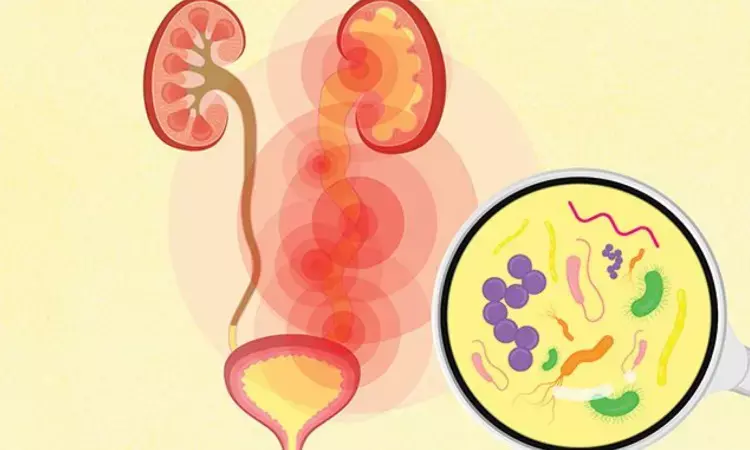- Home
- Medical news & Guidelines
- Anesthesiology
- Cardiology and CTVS
- Critical Care
- Dentistry
- Dermatology
- Diabetes and Endocrinology
- ENT
- Gastroenterology
- Medicine
- Nephrology
- Neurology
- Obstretics-Gynaecology
- Oncology
- Ophthalmology
- Orthopaedics
- Pediatrics-Neonatology
- Psychiatry
- Pulmonology
- Radiology
- Surgery
- Urology
- Laboratory Medicine
- Diet
- Nursing
- Paramedical
- Physiotherapy
- Health news
- Fact Check
- Bone Health Fact Check
- Brain Health Fact Check
- Cancer Related Fact Check
- Child Care Fact Check
- Dental and oral health fact check
- Diabetes and metabolic health fact check
- Diet and Nutrition Fact Check
- Eye and ENT Care Fact Check
- Fitness fact check
- Gut health fact check
- Heart health fact check
- Kidney health fact check
- Medical education fact check
- Men's health fact check
- Respiratory fact check
- Skin and hair care fact check
- Vaccine and Immunization fact check
- Women's health fact check
- AYUSH
- State News
- Andaman and Nicobar Islands
- Andhra Pradesh
- Arunachal Pradesh
- Assam
- Bihar
- Chandigarh
- Chattisgarh
- Dadra and Nagar Haveli
- Daman and Diu
- Delhi
- Goa
- Gujarat
- Haryana
- Himachal Pradesh
- Jammu & Kashmir
- Jharkhand
- Karnataka
- Kerala
- Ladakh
- Lakshadweep
- Madhya Pradesh
- Maharashtra
- Manipur
- Meghalaya
- Mizoram
- Nagaland
- Odisha
- Puducherry
- Punjab
- Rajasthan
- Sikkim
- Tamil Nadu
- Telangana
- Tripura
- Uttar Pradesh
- Uttrakhand
- West Bengal
- Medical Education
- Industry
Male contraceptive pills show promise in new study

Two experimental male contraceptive pills appear to effectively lower testosterone without causing unacceptable side effects, according to a new study that will be presented Monday at ENDO 2022, the Endocrine Society's annual meeting in Atlanta, Ga.
The drugs, called DMAU and 11β-MNTDC, are part of a class of drugs called progestogenic androgens. These drugs suppress testosterone, which lowers sperm count. Lowering testosterone levels normally leads to unpleasant side effects, but most of the men in the study were willing to continue using the drugs, suggesting the side effects were acceptable.
"Male contraception options are currently restricted to vasectomy and condoms, and are thus extremely limited as compared to female options," said lead researcher Tamar Jacobsohn of the Contraceptive Development Program at the Eunice Kennedy Shriver National Institute of Child Health and Human Development.
"Development of an effective, reversible male contraceptive method will improve reproductive options for men and women, have a major impact on public health by decreasing unintended pregnancy, and allow men to have an increasingly active role in family planning."
The study included 96 healthy male participants in two Phase 1 clinical trials. In each trial, the men were randomly assigned to receive two or four oral pills of active drug or placebo daily for 28 days. After seven days on the active drug, testosterone levels dropped below normal range. In men taking the placebo, testosterone levels stayed within the normal range.
The study found 75% of men who took the active drug said they would be willing to use it in the future, compared with 46.4% of those taking a placebo. Men who took the four-pill daily dose (400 milligrams) had lower levels of testosterone than those taking the two-pill, 200-milligram dose. There was no significant difference between the two active treatment groups in satisfaction with the drug, or willingness to use it in the future or recommend it to others.
"Men's positive experiences in clinical trials and high ratings of acceptability for this male pill should serve to excite the public about male birth control being potentially widely available in the coming decades," Jacobsohn said.
Dr Kamal Kant Kohli-MBBS, DTCD- a chest specialist with more than 30 years of practice and a flair for writing clinical articles, Dr Kamal Kant Kohli joined Medical Dialogues as a Chief Editor of Medical News. Besides writing articles, as an editor, he proofreads and verifies all the medical content published on Medical Dialogues including those coming from journals, studies,medical conferences,guidelines etc. Email: drkohli@medicaldialogues.in. Contact no. 011-43720751


